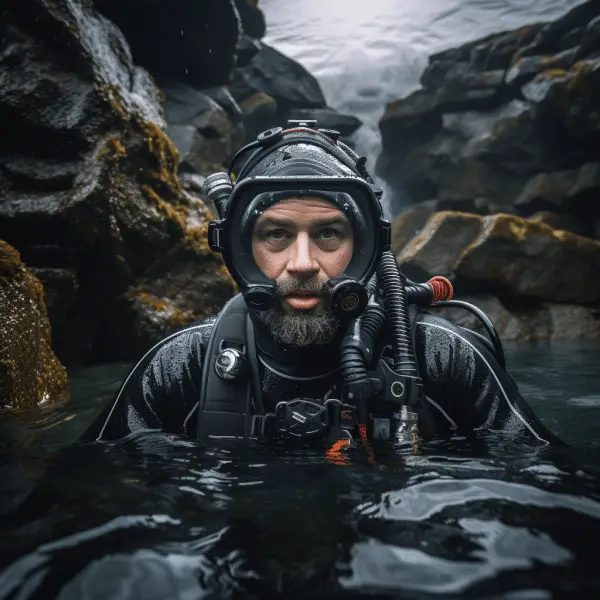Cold water diving can be challenging due to the low temperatures underwater. However, with the advancements in manufacturing, there are now heavy-duty cold water diving suits available that provide excellent warmth and protection to divers. These suits are made with high-stretch-neoprene fabrics, internal linings, and high-quality zippers, making them easy to put on and take off. When choosing a cold water diving suit, it is important to consider factors such as thickness, flexibility, and quality of materials.
Key Takeaways:
- Invest in a high-quality cold water diving suit to stay warm and protected in the water.
- Look for suits made with high-stretch-neoprene fabrics for flexibility and comfort.
- Consider the thickness of the suit to ensure adequate insulation in cold water conditions.
- Choose suits with quality zippers and internal linings for easy wearing and added warmth.
- Properly fitting suits minimize water flush and maximize thermal protection.
Stay Warm & Protected on Your Cold Water Dives

When it comes to cold water diving, staying warm and protected should be every diver’s top priority. Investing in a high-quality cold water diving suit is crucial for a comfortable and enjoyable diving experience. These specialized suits are designed to provide excellent warmth and protection in low temperature underwater environments.
There are various types of cold water diving suits available, including neoprene diving suits, thermal insulation suits, and drysuits. Each suit offers unique features and benefits, such as four-way stretch neoprene, smooth-skin O-ring seals, and reinforced panels. By choosing a suit that suits your specific needs and preferences, you can ensure optimal thermal insulation and flexibility during your dives.
In addition to wearing a top-rated diving suit, there are other important factors to consider for staying warm in cold water conditions. Layering is key, as it helps trap heat and provides extra insulation. Wearing a hooded vest under the wetsuit and adding thermal products like wooly sweaters can significantly increase warmth. It’s also crucial to choose a properly fitting wetsuit that minimizes water flush and maximizes thermal protection.
Before heading out for a cold water dive, it’s essential to prepare properly. Bundle up and eat a warm meal to keep your body warm before entering the water. During the dive, constantly monitor your body temperature and know when to call off the dive if you start feeling excessively cold. By following these tips and using the right cold water diving gear, you can confidently explore the depths and enjoy the wonders of cold water diving.
FAQ
Are cold water diving suits really necessary?
Yes, cold water diving suits are necessary to provide thermal insulation and protection in low-temperature underwater conditions.
What are the key features to consider when choosing a cold water diving suit?
When choosing a cold water diving suit, it is important to consider factors such as thickness, flexibility, and quality of materials.
What are some popular brands of cold water diving suits?
Some popular brands of cold water diving suits include Akona, Aqua Lung, and Bare.
How can I stay warm in cold water diving conditions?
Layering, choosing a properly fitting wetsuit, and adding thermal products can help divers stay warm in cold water conditions. It is also important to stay warm before the dive by bundling up and eating a warm meal.
How do I know when to call a dive if I start feeling too cold?
It is important to listen to your body and know your limits. If you start feeling too cold and uncomfortable, it is best to call the dive and prioritize your safety and well-being.
